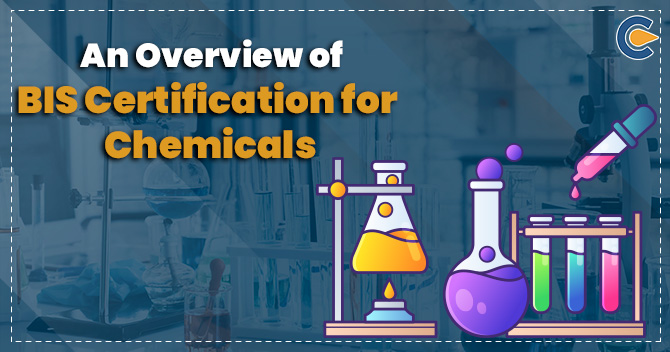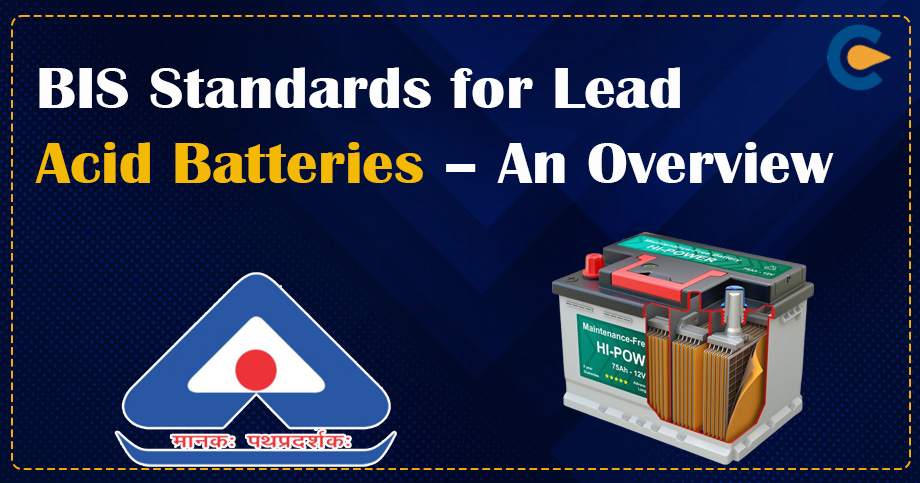In June 2020, the Government had announced mandatory BIS Certification for the manufacture & import of chemical products. If, as a foreign or overseas manufacturer, you have not completed or obtained BIS Certification before Dec 13, 2020, you are no longer allowed or permitted to export your products to India. The extension of the scope of mandatory BIS Certification for Chemicals is in line with the so-called 2023 Plan of the Prime Minister of India. Based on this plan, the Government of India since 2019, has already been pursuing the goal of ensuring the safety, reliability, and quality of the products available on the market through robust expansions of the BIS Certification regulations. Hence, it’s expected that more & more products or items will fall under a mandatory Certification in the coming years. Scroll down to check more information regarding BIS Certification for Chemicals.
What is BIS Certification?
BIS Certification enables the Certificate owner to offer a third-party guarantee of safety, quality, and reliability of products or goods to the customers and is primarily required for the import of products. While the Certification has been voluntary, it was made mandatory by the Government of India for a number of products or items. A licensee holding the BIS Certification for Chemical Items or any items is allowed to use the ISI mark on their products, which tells that the product meets the Indian Standards that are set by the BIS or Bureau of Indian Standard[1].
Who Issues BIS Certification for Chemicals products in India?
BIS Certification for Chemicals products in India is issued by the BIS or Bureau of Indian Standards office. It’s a National Standards Body that was established with the aim of promoting & nurturing the standards movement in the country. The BIS issues this certificate after conducting a safety test of the product or item according to the defined Indian Standard and providing required documents.
Use of BIS Certification for Chemicals
Bureau of Indian Standards, being a National Standards Body in India, maintains product quality, reliability, and safety. BIS has set up a Central Laboratory, 4 Regional Labs, and 3 Branch Labs in the country to test product samples at the time of preliminary inspections & surveillance operations.
Besides their own labs, the Bureau of Indian Standards or BIS granted accreditation to a huge number of testing labs for testing samples drawn by the BIS Officers. The Government of India has notified various products under mandatory BIS Certification in the interest of public life, safety, and health. With the execution of Quality Control Orders for a new set of Indian Standards for different chemicals, foreign & domestic companies will be required to get a BIS Certification for Chemicals before they can manufacture, store, use, or import the listed chemicals.
Chemical Manufacturers are subject to a Factory Inspection to obtain BIS Certification
Basically, there are three different types of BIS Certification and you can check the same below:
- Compulsory BIS Certification, including Factory Inspection;
- The Voluntary BIS Certification;
- The Mandatory BIS Certification without Factory Inspection.
The chemical products or items that have just been added come under the 1st type of Certification. This means that both foreign & domestic producers require licenses to sell, manufacture, and supply chemicals in India. A factory inspection is compulsory for both and therefore, it is an extremely time-consuming process that producers need to begin with as soon as possible.
Following is the table of 14 chemical products that new & mandatory BIS Certification:
| Applicable Indian Standards | |
| Beta Picoline | IS 16112: 2013 |
| Pyridine | IS 8058: 2018 |
| Gamma Picoline | IS 16113: 2013 |
| Sodium Sulfide | ID 297: 2001 |
| Potassium Carbonate | IS 7129: 1992 |
| Acetone | IS 170: 200 |
| Hydrogen Peroxide | IS 2080: 1980 |
| Morpholine | IS 12084: 2018 |
| Phosphorus Oxychloride | IS 11657: 1986 |
| Sodium Tripolyphosphate | IS 6100: 1984 |
| Sodium Formaldehyde Sulfoxylate | IS 4505: 2015 |
| Phosphorus Pentachloride | IS 11744: 1986 |
| Precipitated Barium Carbonate | IS 3205: 1984 |
| Phosphorus Trichloride | IS 4581: 1978 |
Procedure for BIS Certification for Chemicals
On notification of such Quality Control Orders, all international suppliers & domestic manufacturers of these products or items will need to submit an application for BIS Certification for Chemicals to the concerned BIS Office. The process of BIS Registration would also comprise physical testing & inspection of the related chemical in the factory premises and independent testing of the same by a BIS own laboratory/accredited lab in India.
Certification can initially be granted for one year of a time period, after which the application is to be submitted to BIS for the renewal of BIS Certification from one year to five years. For some Polymers & Chemicals which already fall under the scope of BIS, the Indian Standards for possible up-gradation or changes are being examined. These chemicals comprise Phthalic Anhydride, Ethylene Glycol, Acetone, Toluene, and Butyl Acrylate, etc.
BIS Update Regarding the Extension of Mandatory Certification for Extra Chemical Products
On March 10, 2022, the Government of India extended the enforcement date of existing Quality Control Orders for different chemical products. Producers of these products will now have extra time to get BIS Certification for Chemical Products.
Following are the chemicals that have been extended:
| Date of Entry into Force | |
| Acrylonitrile-Butadiene Styrene or ABS | Sep 12, 2022 |
| Ethylene Dichloride | Sep 12, 2022 |
| Polycarbonate | Sep 12, 2022 |
| Vinyl Chloride Monomer | Sep 12, 2022 |
Conclusion
To obtain such a license, both foreign producers & domestic manufacturers of such products would need to submit a registration application to the BIS for obtaining BIS Certification. Moreover, the certification process will also require physical examination & testing of the pertinent chemicals at the factory premises and parallel testing by a BIS certified lab in India to verify the same.
Read our Article:How to Obtain BIS Certification in India?













